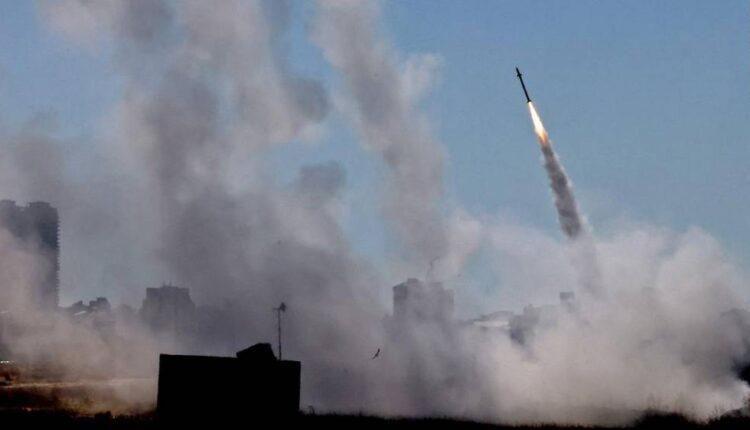(CNN)Conflict between Israelis and Palestinians boiled over this week, escalating rapidly into one of the worst rounds of violence between the two sides in the last several years.
An already tense situation prompted by moves to evict Palestinian families from their homes near the Old City in Jerusalem exploded at one of the holiest sites in the city, known to Muslims as the Noble Sanctuary and to Jews as the Temple Mount. Israeli police entered the Al Aqsa Mosque and clashed with Palestinians inside the sacred site, firing stun grenades while Palestinians threw stones.
The resulting clashes there and in other parts of the Old City left hundreds of Palestinians and some Israeli police officers injured. Palestinian militant groups in Gaza joined the fray by firing rockets into Israel, which responded with airstrikes.
By the following day, a United Nations representative was warning the situation was “escalating towards a full-scale war.”Read More”Stop the fire immediately. We’re escalating towards a full-scale war. Leaders on all sides have to take the responsibility of de-escalation,” UN Special Coordinator for the Middle East Peace Process Tor Wennesland said.But putting a lid on the violence may not be easy. Political, religious, and nationalist factors all play a role in the situation.
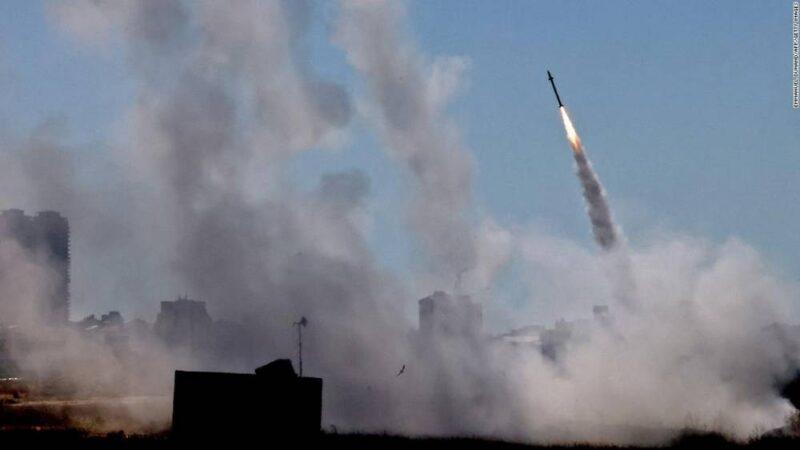
Israel’s Iron Dome aerial defense system is activated to intercept a rocket launched from Gaza on Wednesday.
Why is this happening now?
The city had been on edge for several weeks, with Palestinians angered over the closure of a popular plaza just as Ramadan was beginning, and as a years-long legal battle to remove seven Palestinian families from their homes in East Jerusalem appeared set to end with eviction.The families have been living in the Sheikh Jarrah neighborhood, just north of the Old City, since 1956 — in an arrangement brokered by the United Nations to find homes in Jordanian-controlled East Jerusalem for families who lost their property in what became the state of Israel in 1948.An Israeli nationalist organization called Nahalat Shimon is using a 1970 law — passed after Israel gained control over East Jerusalem — to argue that the owners of the land before 1948 were Jewish families, meaning the current Palestinian occupants should be evicted and their properties given to Israeli Jews.
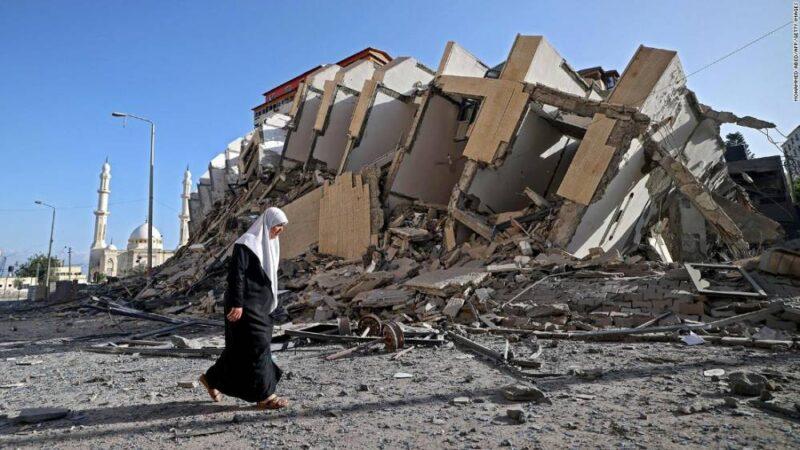
48 killed in Gaza, 5 killed in Israel as UN warns conflict could turn into 'full-scale war'Palestinians contend that restitution laws in Israel are unfair because they have no legal means to reclaim the property they lost to Jewish families in the late 1940s in what became the state of Israel. Israel’s Supreme Court was due to hear an appeal in the Sheikh Jarrah case on May 10. But Israel’s Attorney General asked for a delay.The legal battle over the homes in Sheikh Jarrah has reignited a simmering debate about who has claim to the city, its holy sites, and its history. Jerusalem has always been the most sensitive part of the Israeli-Palestinian conflict. Small changes to a delicate situation can ignite massive protests. And extremist voices are often on hand and make themselves known.Hundreds of Jewish extremists marched through Jerusalem at the end of April chanting “Death to Arabs,” on a night when there were a number of incidents reported of the city’s Jewish and Arab communities targeting one another for attack.Earlier this week, the annual Jerusalem Day march, which normally works its way through the Muslim Quarter of the Old City, was re-rerouted in an attempt to avoid further escalation.
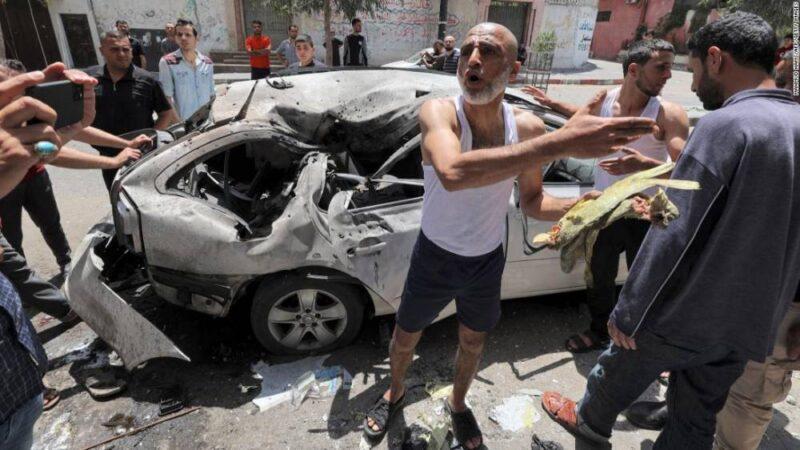
Photos: In pictures: Violence escalates after clashes in JerusalemPalestinians inspect a vehicle destroyed by an Israeli air strike after the bodies of its occupants were retrieved, in Gaza City on Wednesday, May 12.Hide Caption 1 of 27
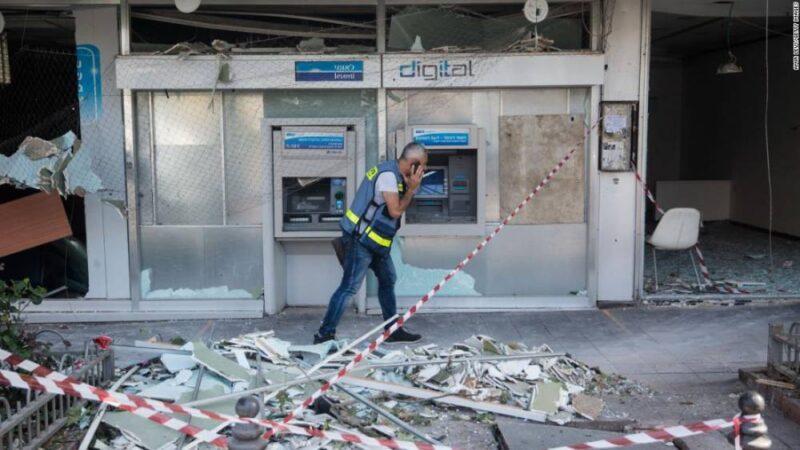
Photos: In pictures: Violence escalates after clashes in JerusalemA man walks through debris after a rocket launched from the Gaza strip struck an area in Holon, Israel, on May 12.Hide Caption 2 of 27
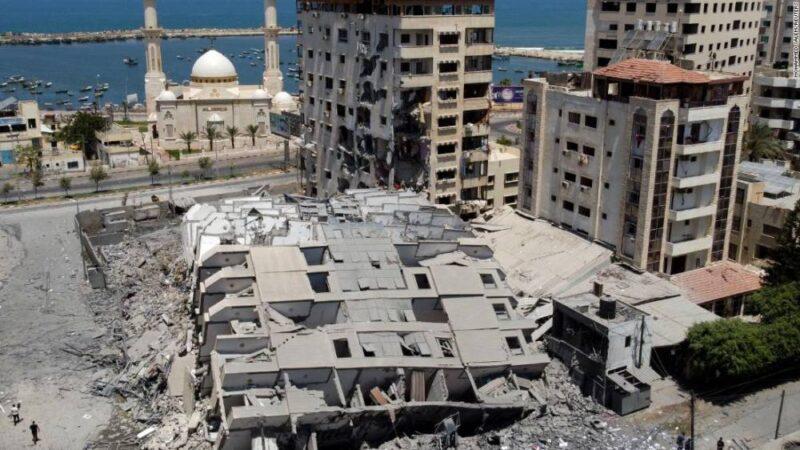
Photos: In pictures: Violence escalates after clashes in JerusalemAn aerial view on May 12 shows the remains of a tower building in Gaza City, which was destroyed in Israeli air strikes.Hide Caption 3 of 27
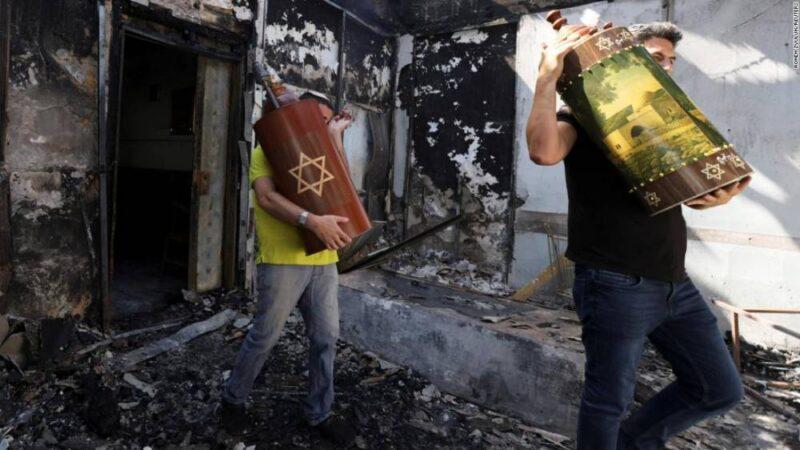
Photos: In pictures: Violence escalates after clashes in JerusalemTorah scrolls, Jewish holy scriptures, are removed from a synagogue which was burned during confrontations between Israeli Arab demonstrators and police, on May 12, in Lod, Israel.Hide Caption 4 of 27
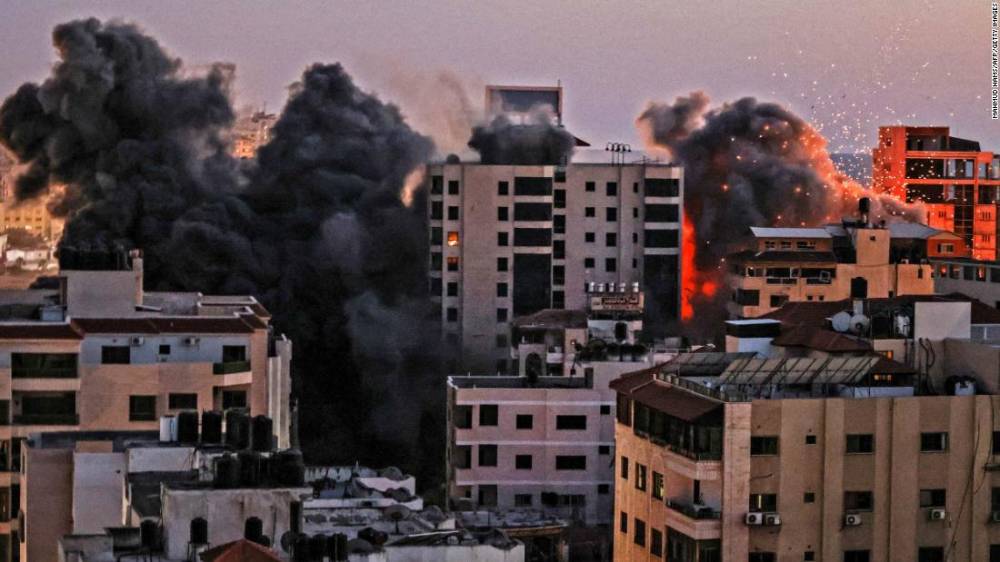
Photos: In pictures: Violence escalates after clashes in JerusalemSmoke billows from an Israeli air strike on the Hanadi compound in Gaza City, on Tuesday, May 11.Hide Caption 5 of 27
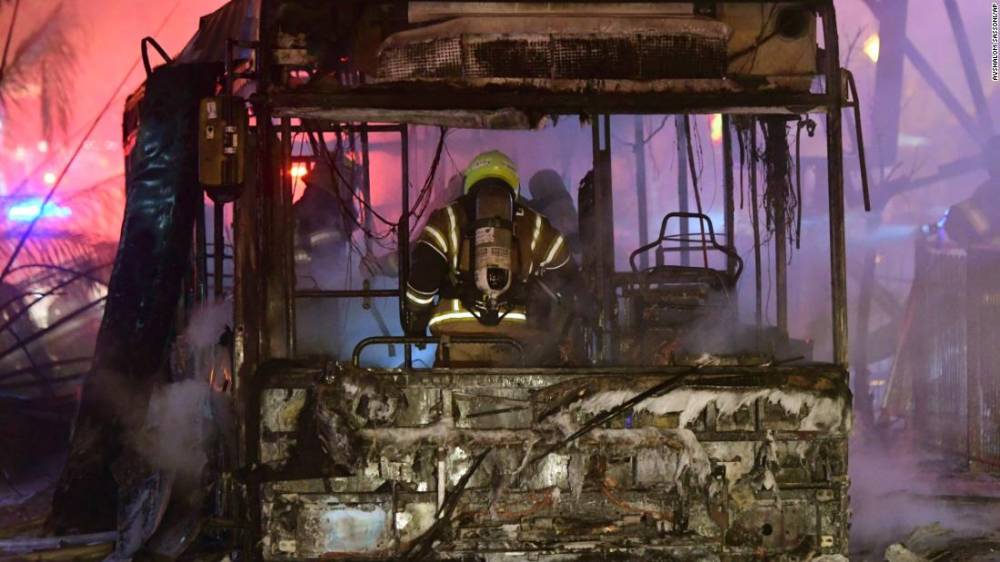
Photos: In pictures: Violence escalates after clashes in JerusalemAn Israeli firefighter extinguishes a burning bus after it was hit by a rocket fired from the Gaza Strip, in Holon, Israel, on May 11.Hide Caption 6 of 27
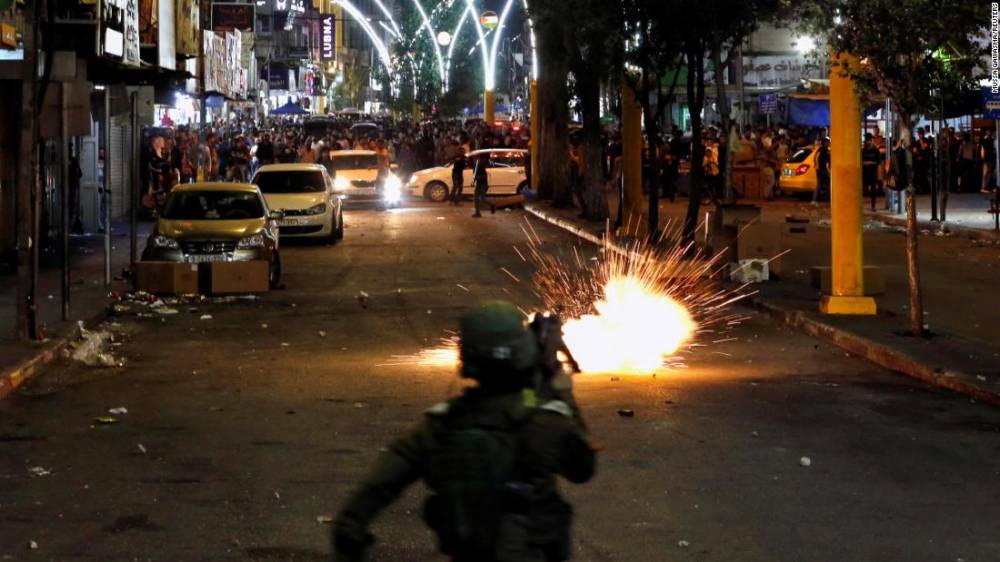
Photos: In pictures: Violence escalates after clashes in JerusalemA stun grenade fired by Israeli forces explodes as Palestinians take part in an anti-Israel protest in Hebron, West Bank, on May 11.Hide Caption 7 of 27
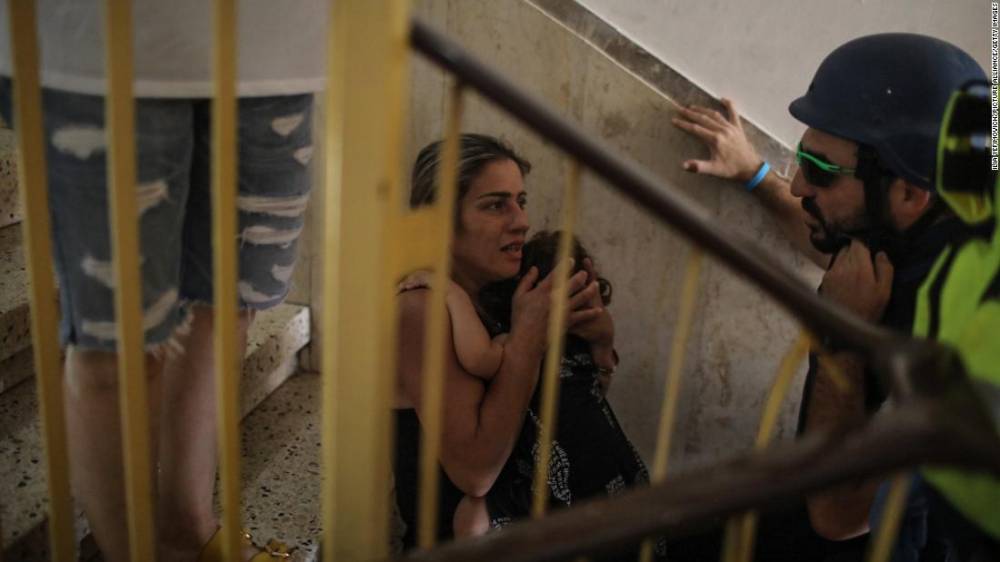
Photos: In pictures: Violence escalates after clashes in JerusalemPeople sit on a staircase of a house in Ashkelon, Israel, as rockets are fired from the Gaza Strip, on May 11.Hide Caption 8 of 27
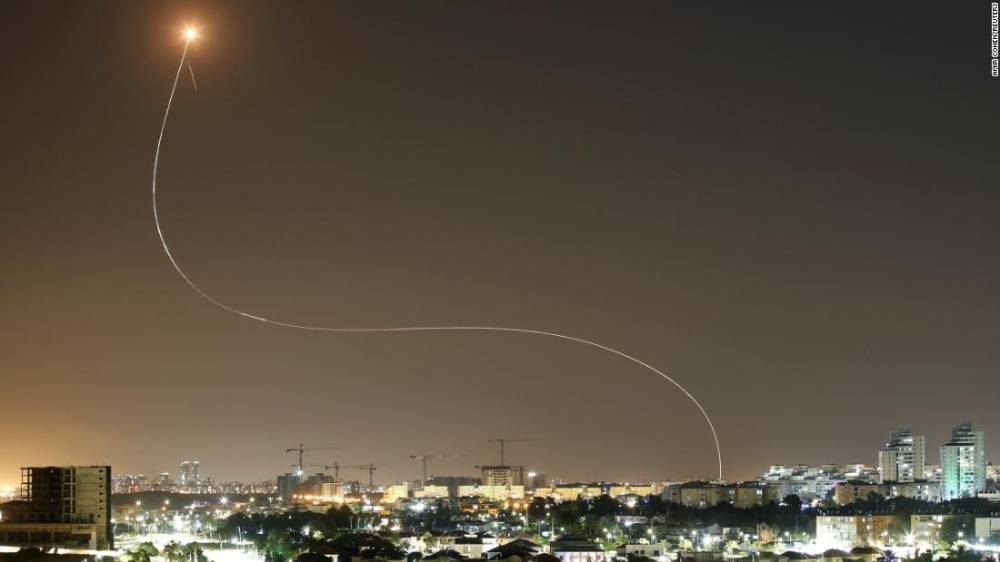
Photos: In pictures: Violence escalates after clashes in JerusalemA streak of light is seen from Ashkelon, Israel, as Israel’s Iron Dome anti-missile system intercepts rockets launched from the Gaza Strip towards Israel on May 11.Hide Caption 9 of 27
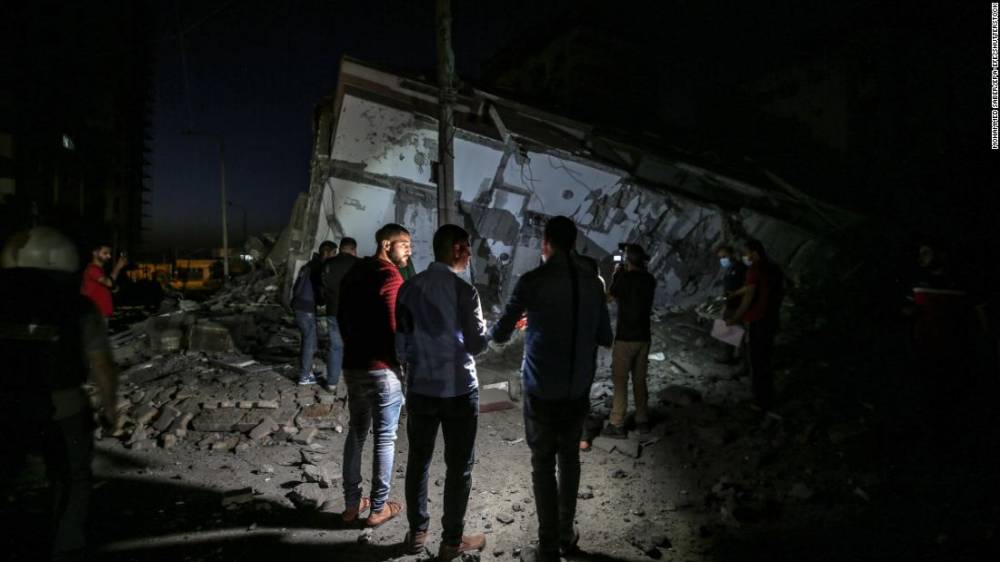
Photos: In pictures: Violence escalates after clashes in JerusalemPalestinians inspect the rubble of the destroyed Hanadi tower, after an Israeli airstrike in Gaza City, on May 11.Hide Caption 10 of 27
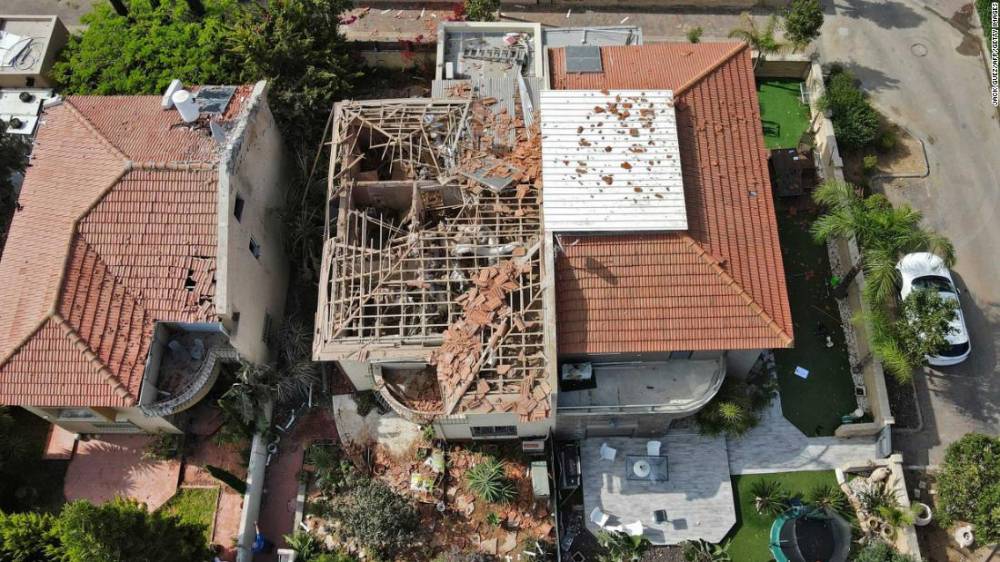
Photos: In pictures: Violence escalates after clashes in JerusalemA damaged house is pictured in a residential neighborhood in Ashkelon, Israel, on May 11, after rockets were fired by from the Gaza Strip.Hide Caption 11 of 27
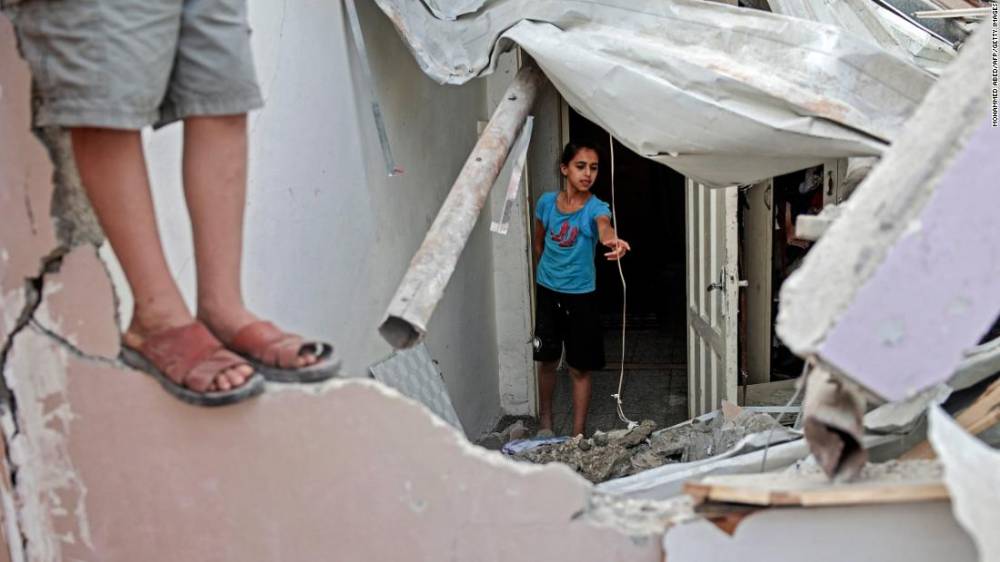
Photos: In pictures: Violence escalates after clashes in JerusalemPalestinian children inspect a damaged bedroom following an Israeli airstrike at al-Shati Refugee Camp in Gaza City, on May 11.Hide Caption 12 of 27
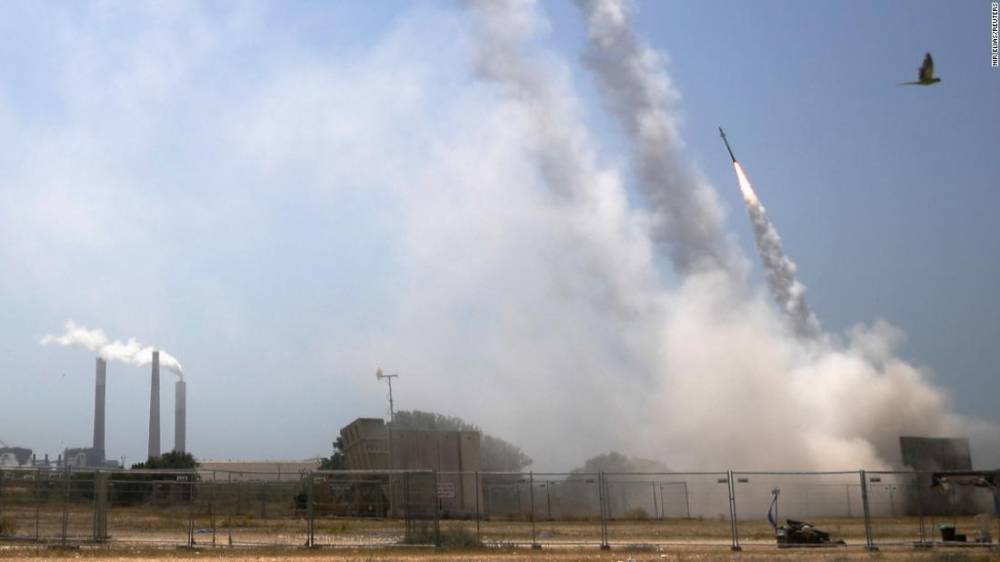
Photos: In pictures: Violence escalates after clashes in JerusalemIsrael’s Iron Dome anti-missile system fires to intercept rockets launched from the Gaza Strip, as seen from Ashkelon, Israel, on May 11.Hide Caption 13 of 27
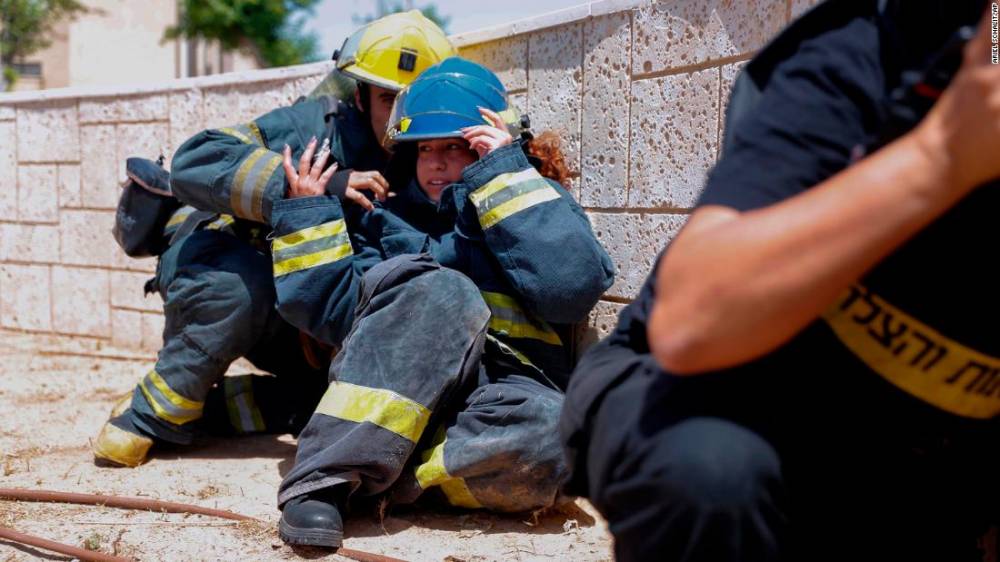
Photos: In pictures: Violence escalates after clashes in JerusalemIsraeli firefighters take cover as a siren sounds a warning of incoming rockets fired from Gaza strip, in Ashkelon, on May 11.Hide Caption 14 of 27
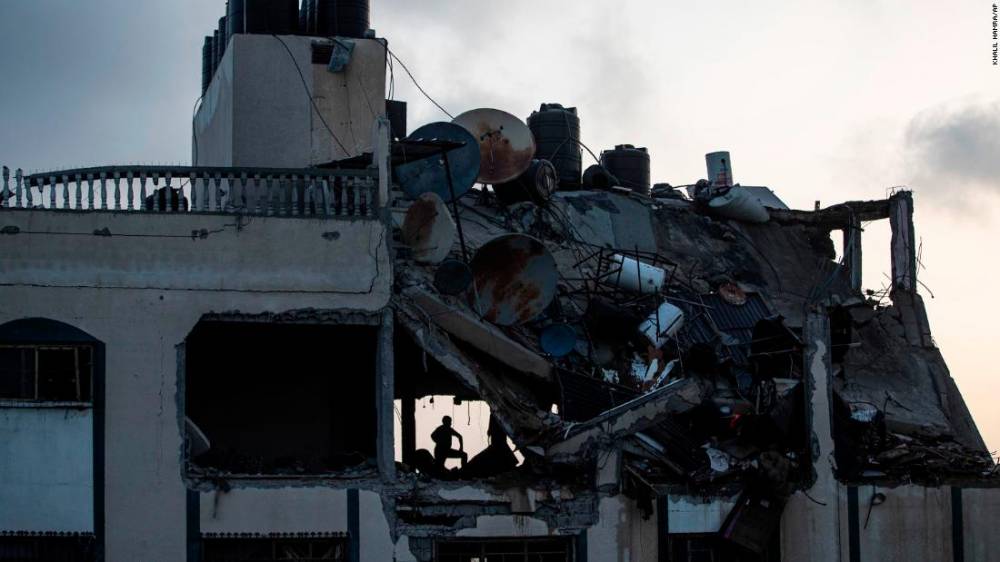
Photos: In pictures: Violence escalates after clashes in JerusalemPalestinians search for survivors under the rubble of a destroyed rooftop of a residential building that was hit by Israeli missile strikes, at the Shate refugee camp in Gaza City, on May 11.Hide Caption 15 of 27
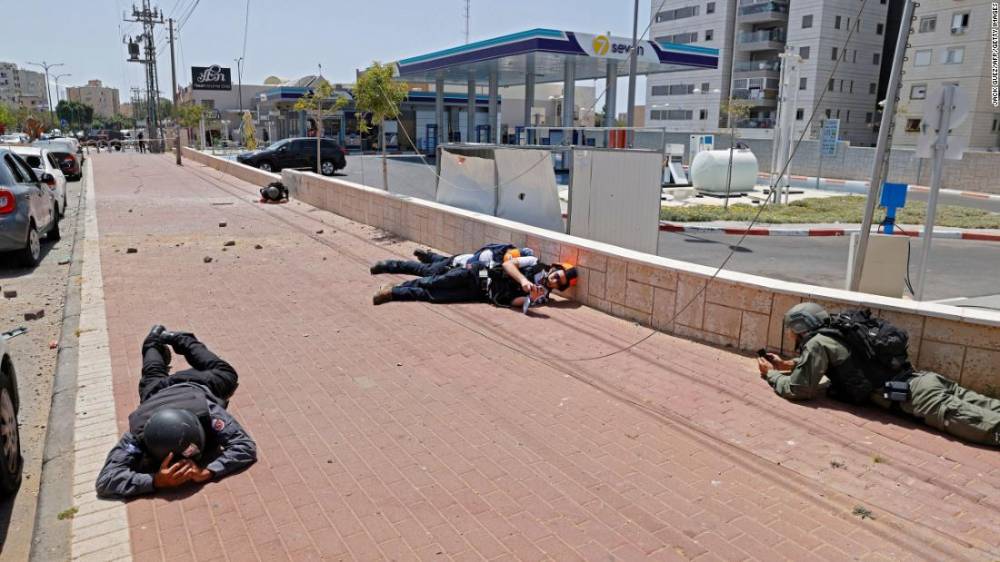
Photos: In pictures: Violence escalates after clashes in JerusalemIsraeli security forces take cover in Ashkelon as rockets are launched from the Gaza Strip, on May 11.Hide Caption 16 of 27
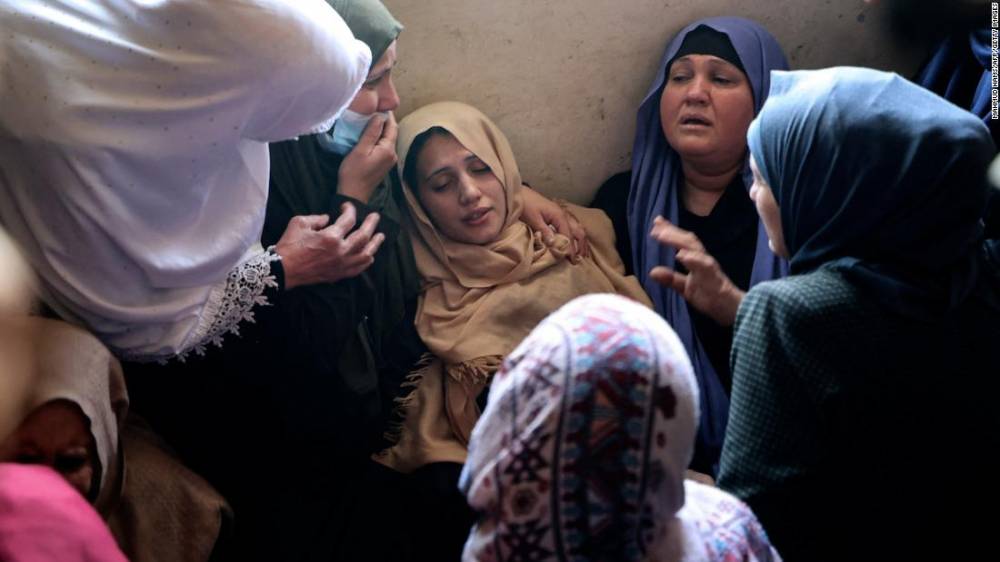
Photos: In pictures: Violence escalates after clashes in JerusalemThe mother of Palestinian Hussien Hamad, 11, who was killed during fire between Israel and Gaza, is comforted by mourners during his funeral in Beit Hanoun, in the northern Gaza Strip, on May 11.Hide Caption 17 of 27
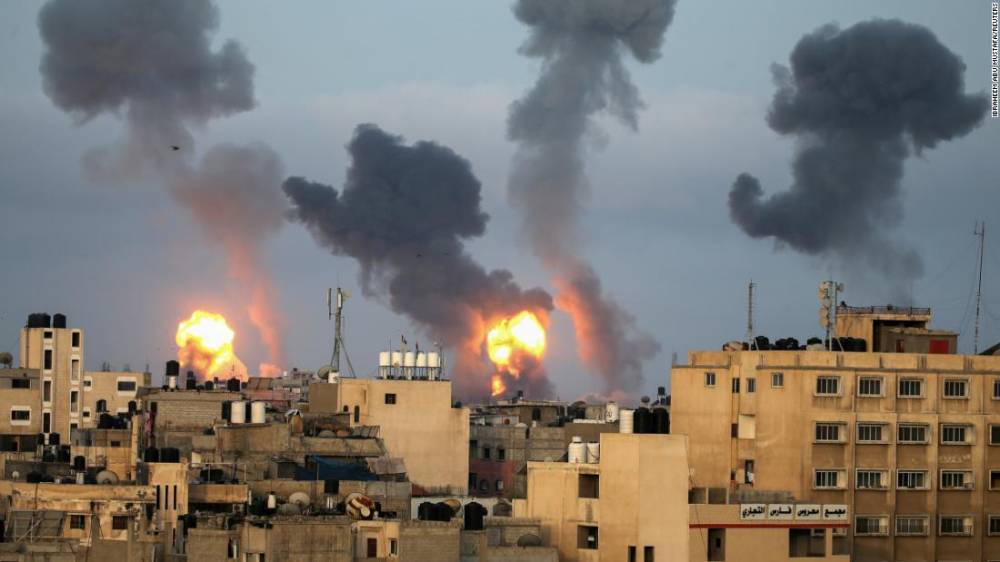
Photos: In pictures: Violence escalates after clashes in JerusalemFlames and smoke rise from buildings in the southern Gaza Strip during Israeli air strikes on May 11.Hide Caption 18 of 27
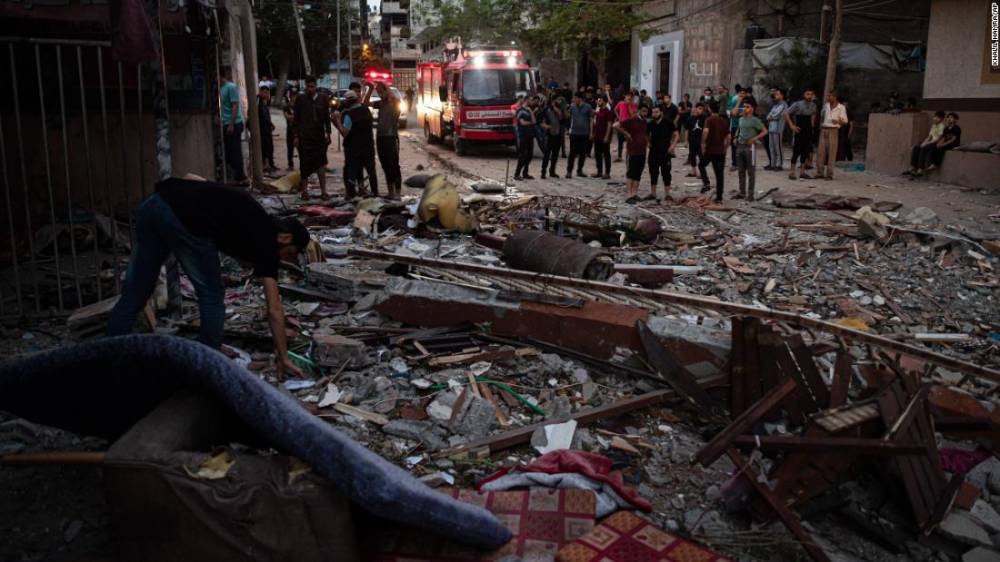
Photos: In pictures: Violence escalates after clashes in JerusalemA Palestinian man inspects the rubble of a partially destroyed residential building after it was hit by Israeli missile strikes, at the Shati refugee camp in Gaza City, on May 11.Hide Caption 19 of 27
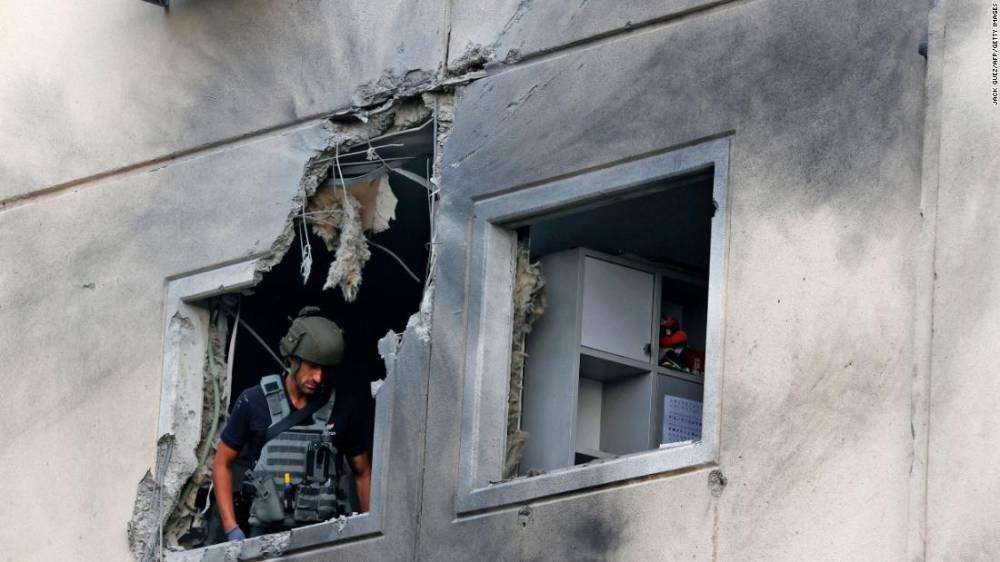
Photos: In pictures: Violence escalates after clashes in JerusalemAn Israeli soldier checks a damaged apartment building in Ashkelon on May 11, after rockets were fired from the Gaza Strip.Hide Caption 20 of 27
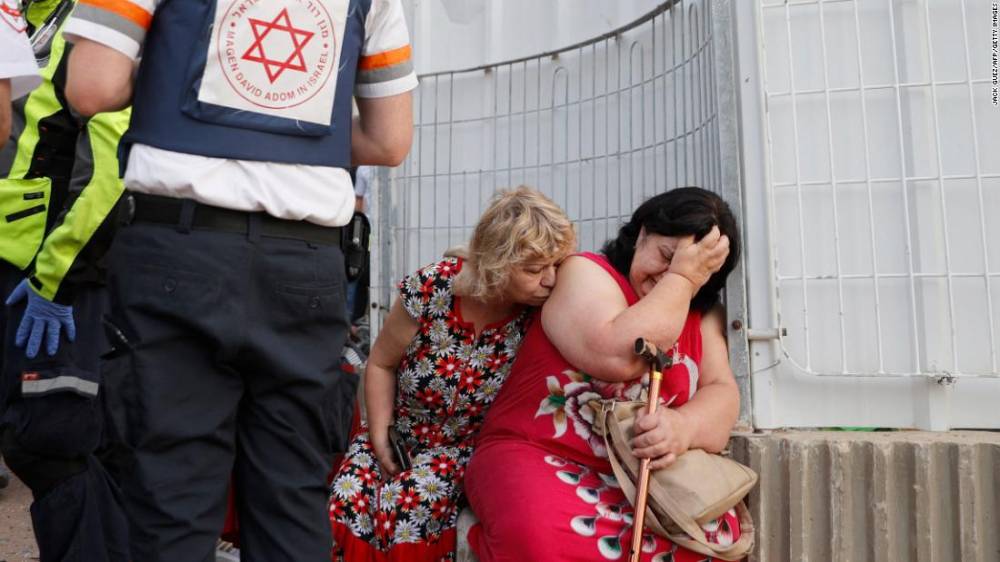
Photos: In pictures: Violence escalates after clashes in JerusalemIsraeli rescue teams help residents in a residential neighborhood of Ashkelon on May 11, after rockets were fired by Hamas towards Israel overnight.Hide Caption 21 of 27
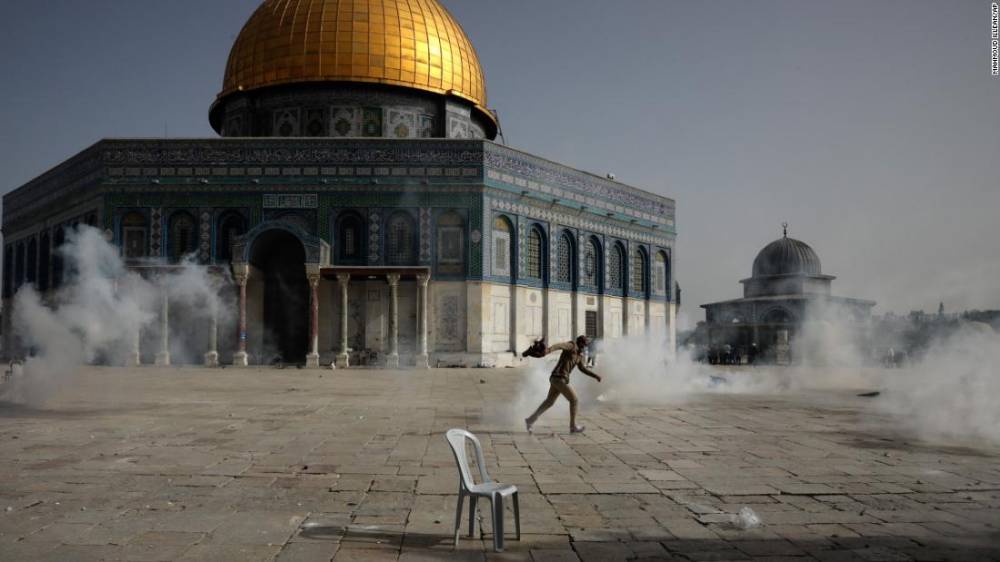
Photos: In pictures: Violence escalates after clashes in JerusalemA Palestinian man runs from tear gas during clashes with Israeli security forces at the Al-Aqsa Mosque compound in Jerusalem’s Old City, on Monday, May 10.Hide Caption 22 of 27
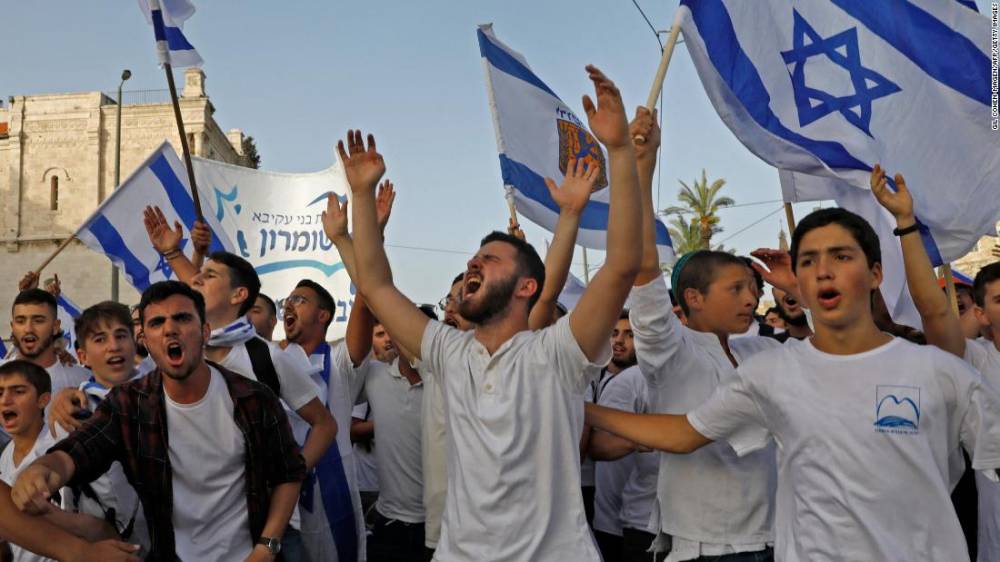
Photos: In pictures: Violence escalates after clashes in JerusalemIsraelis take part in the annual Jewish nationalist “Jerusalem Day” march on May 10, to mark the reunification of Jerusalem after Israel captured the eastern part of the city from Jordan in the 1967 Six-Day War.Hide Caption 23 of 27
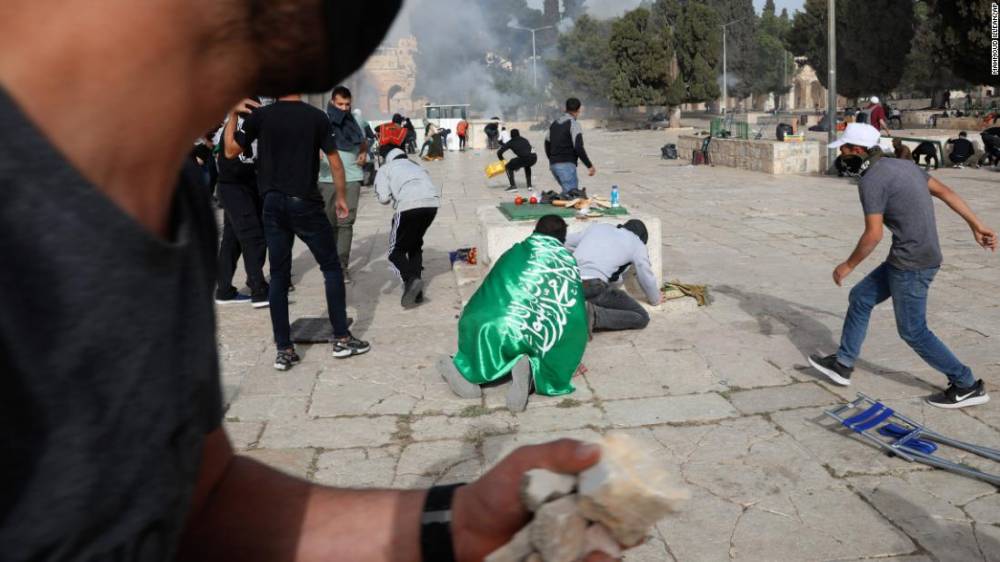
Photos: In pictures: Violence escalates after clashes in JerusalemPalestinians clash with Israeli security forces at the Al-Aqsa Mosque compound in Jerusalem’s Old City on May 10.Hide Caption 24 of 27
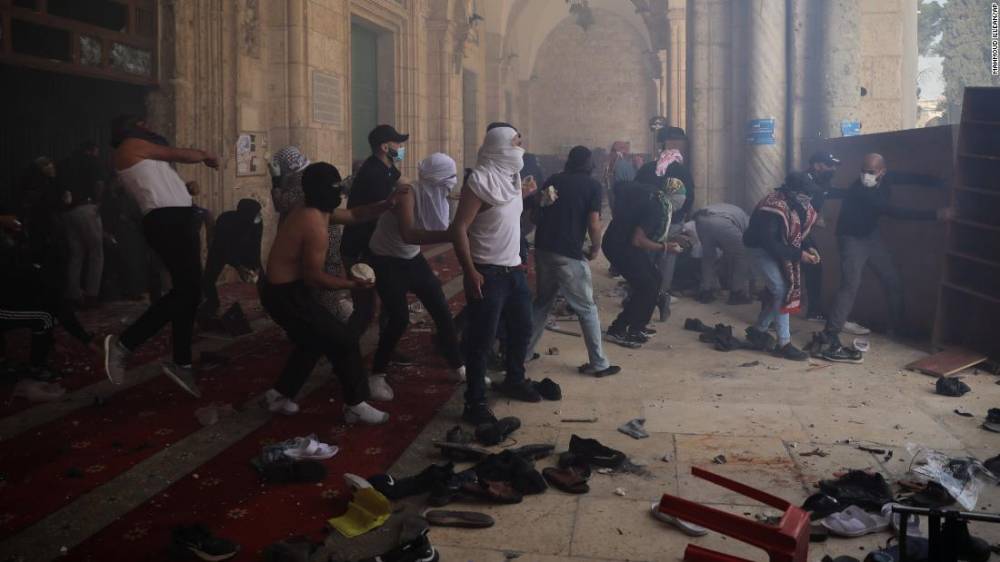
Photos: In pictures: Violence escalates after clashes in JerusalemPalestinians are seen at the Al-Aqsa Mosque compound during confrontations with Israeli police, on May 10. Hide Caption 25 of 27
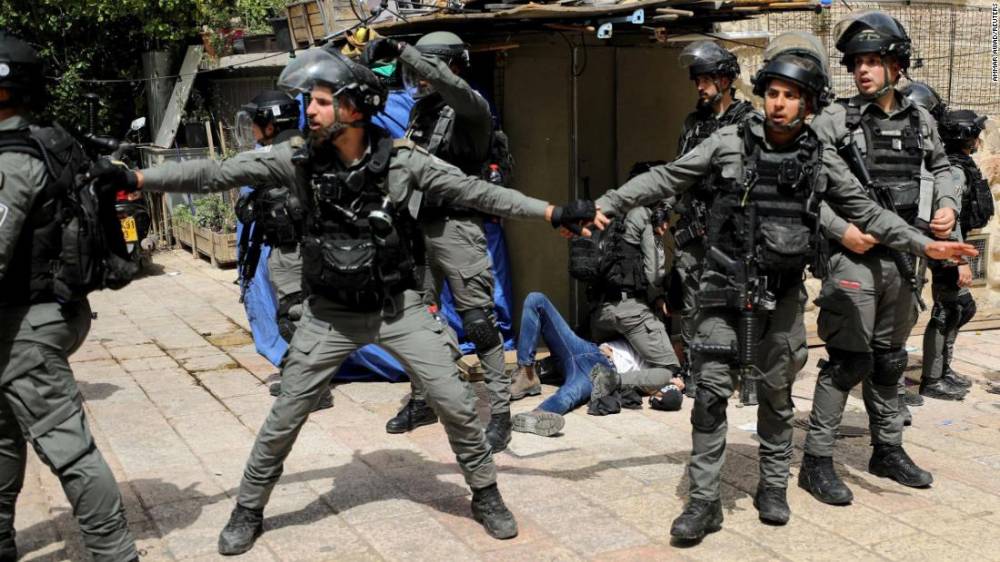
Photos: In pictures: Violence escalates after clashes in JerusalemIsraeli police detain a Palestinian during clashes at Al-Aqsa Mosque on May 10.Hide Caption 26 of 27
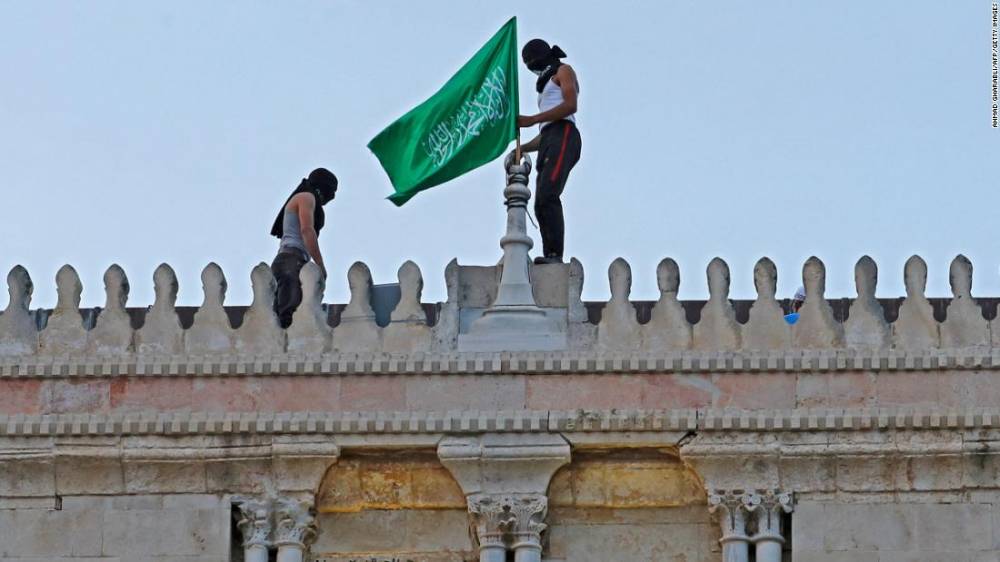
Photos: In pictures: Violence escalates after clashes in JerusalemPalestinians place the Hamas movement flag atop the Al-Aqsa mosque on May 10.Hide Caption 27 of 27
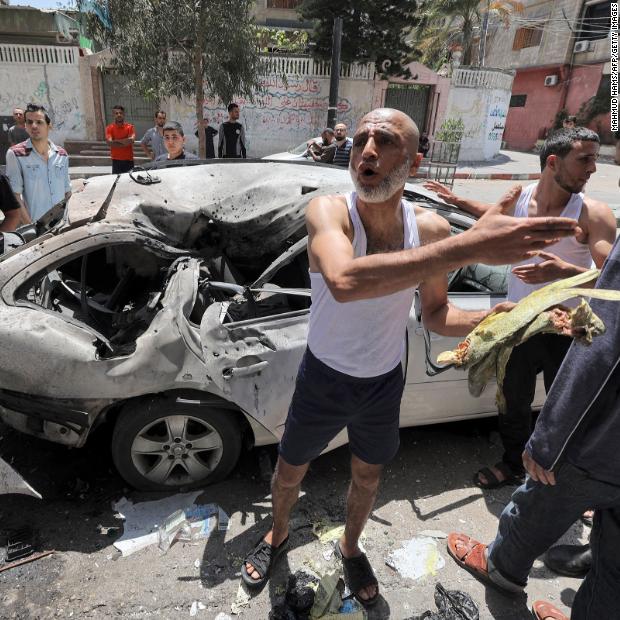
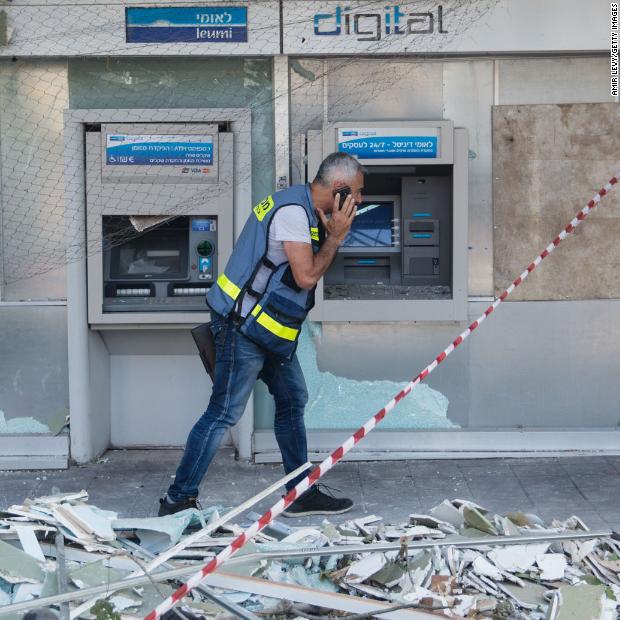
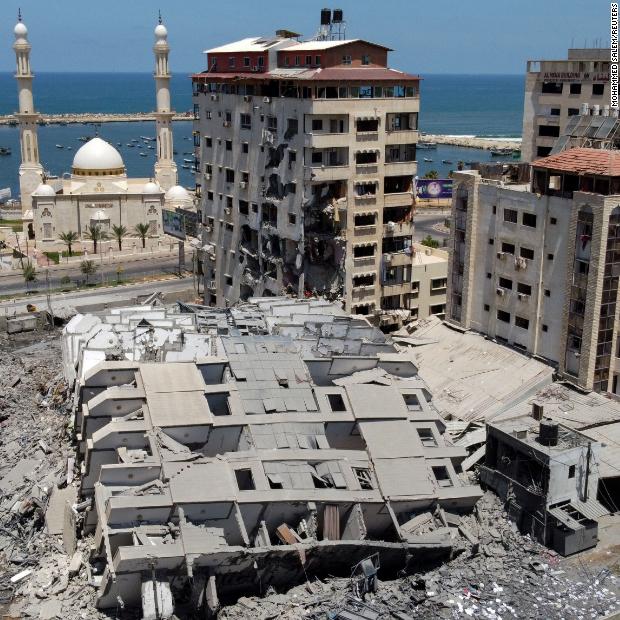
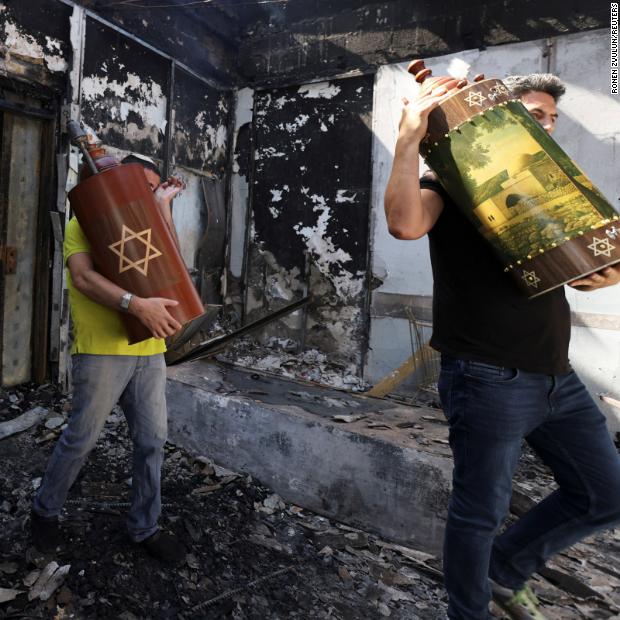
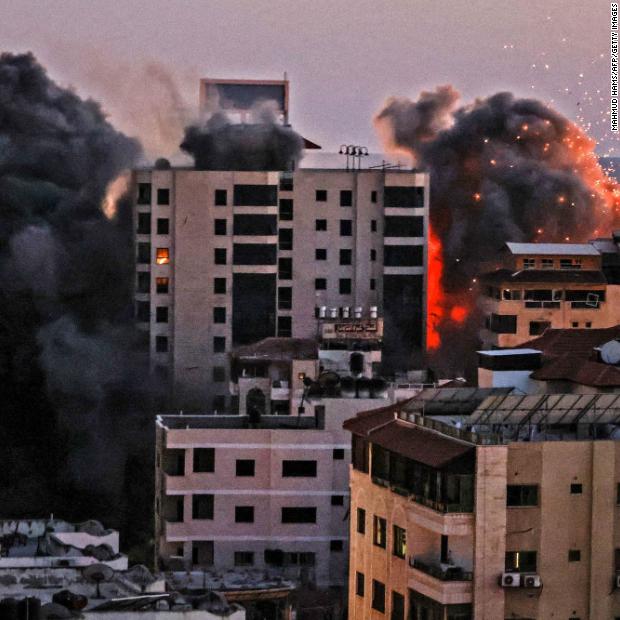
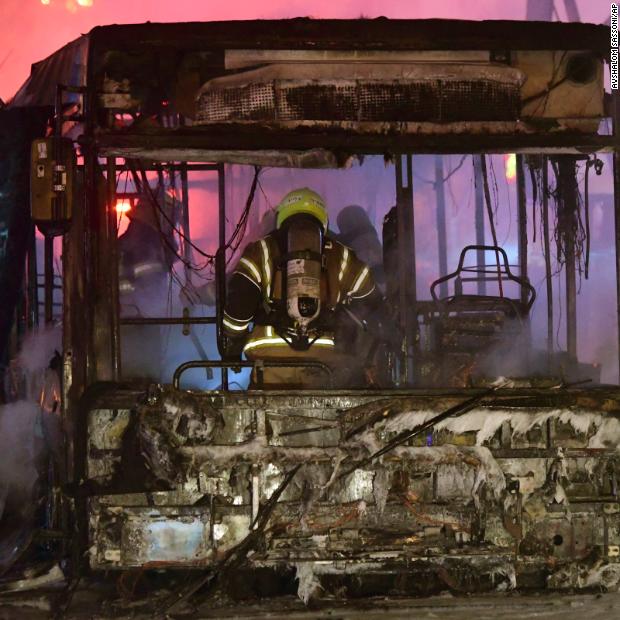
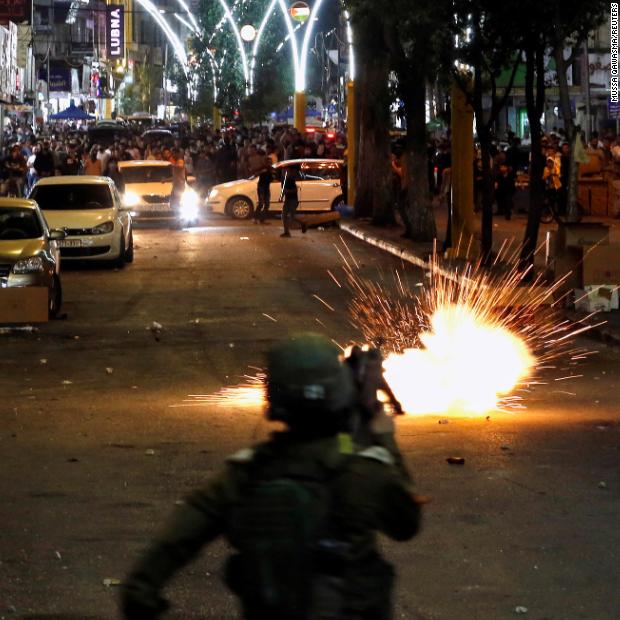
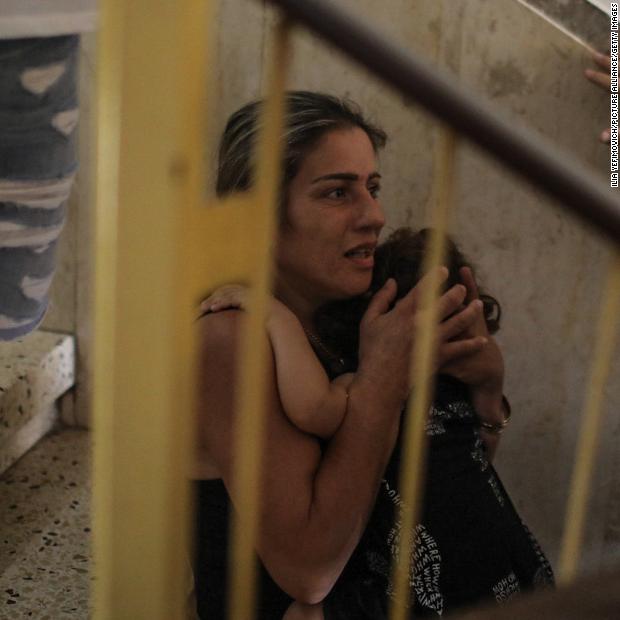
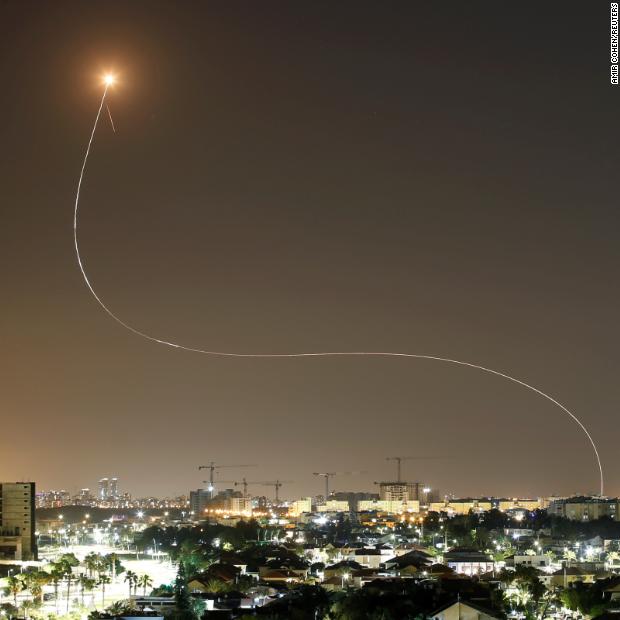
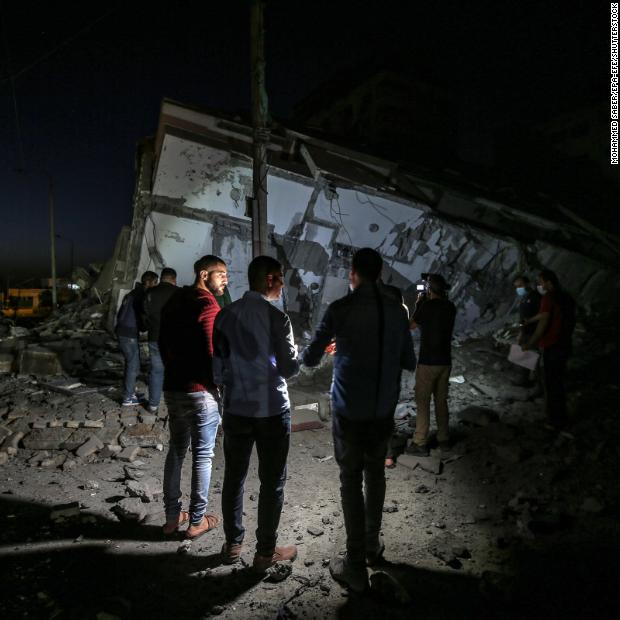
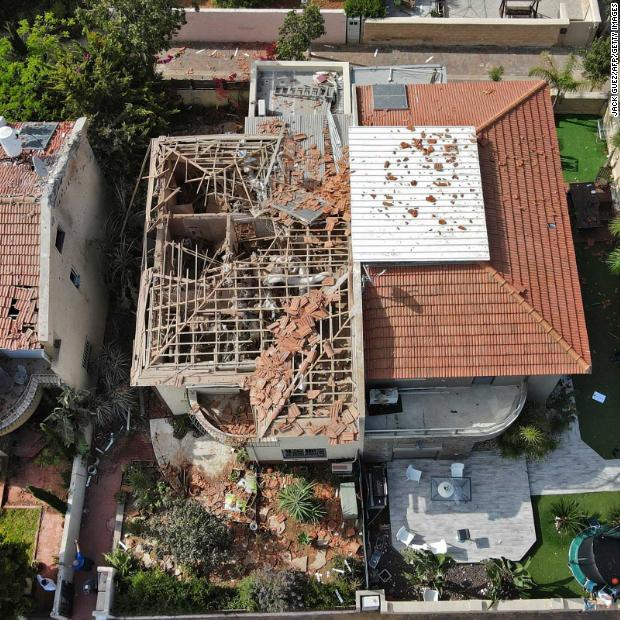
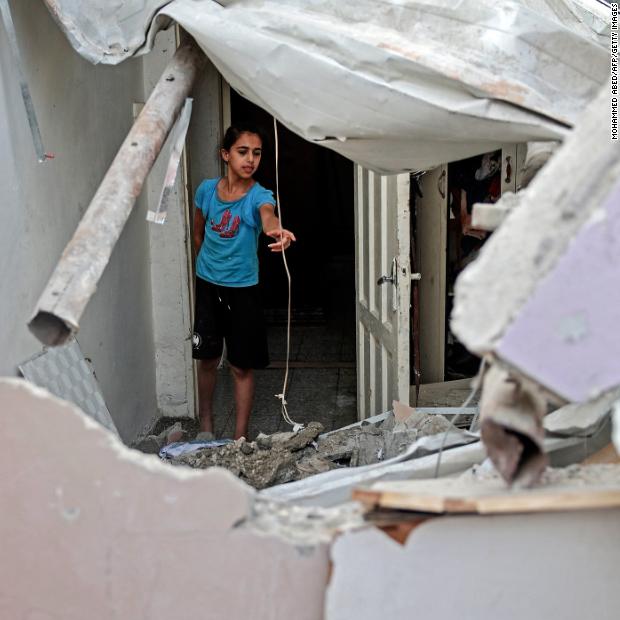
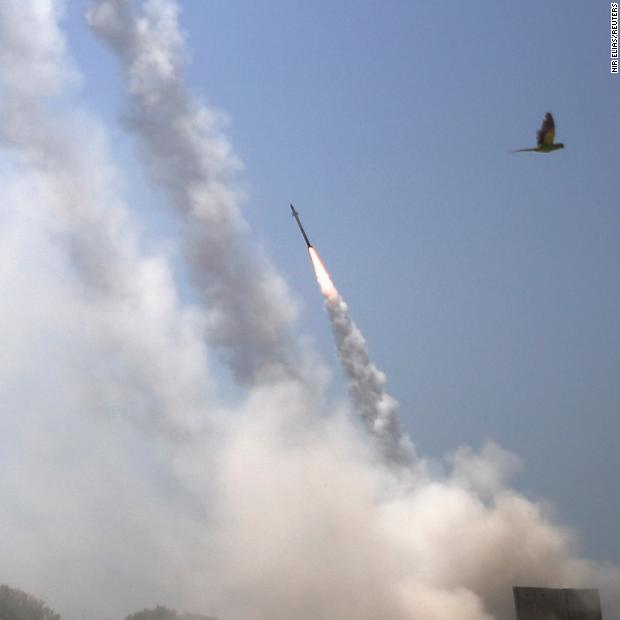
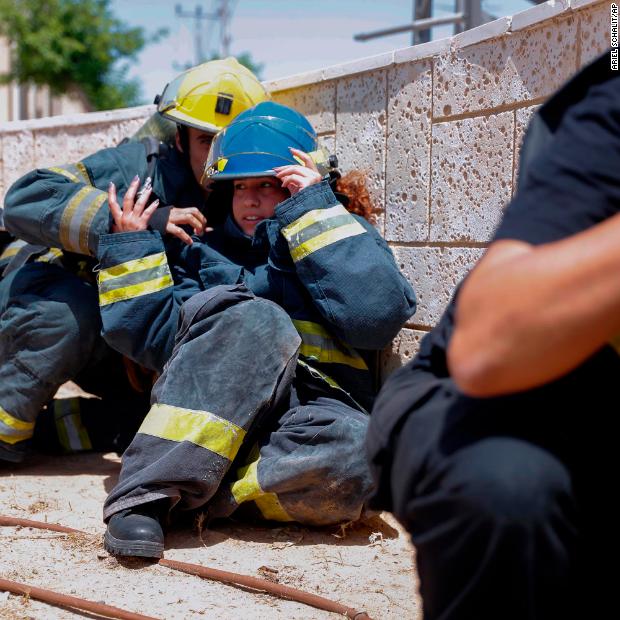
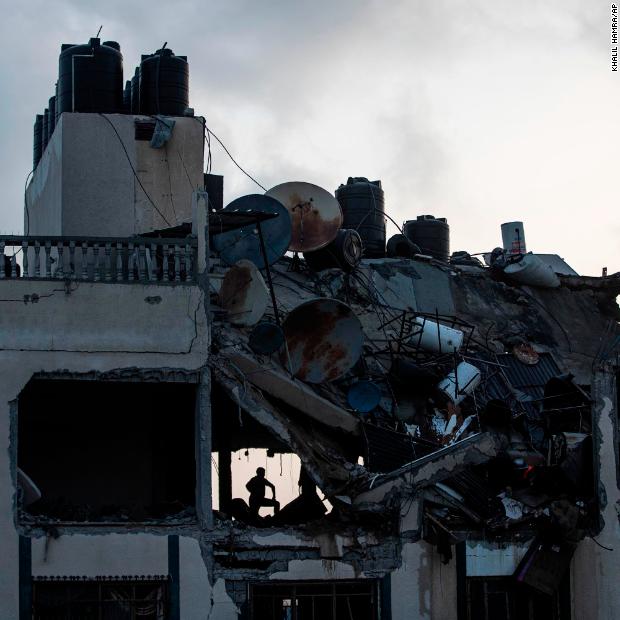
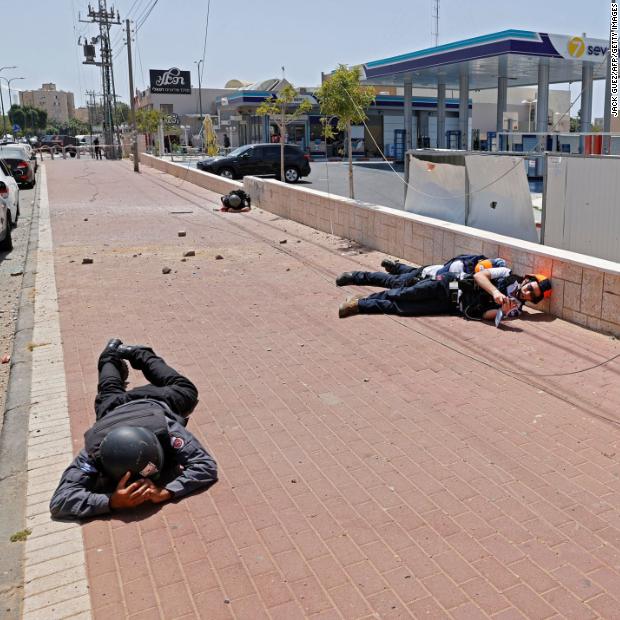
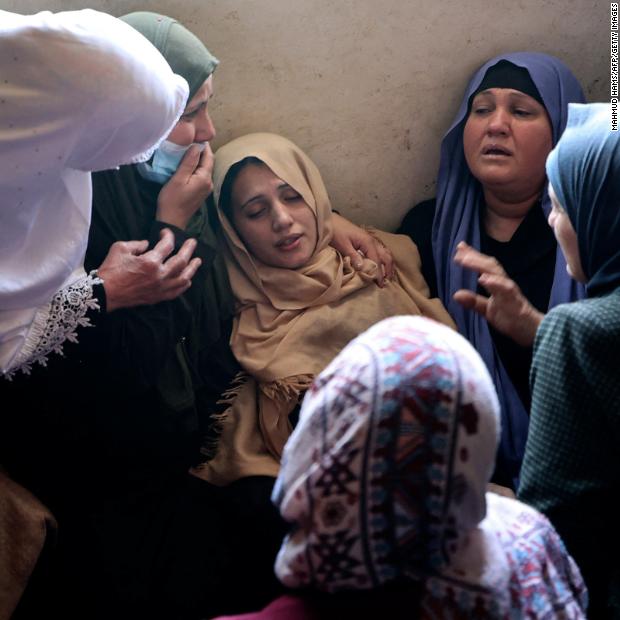
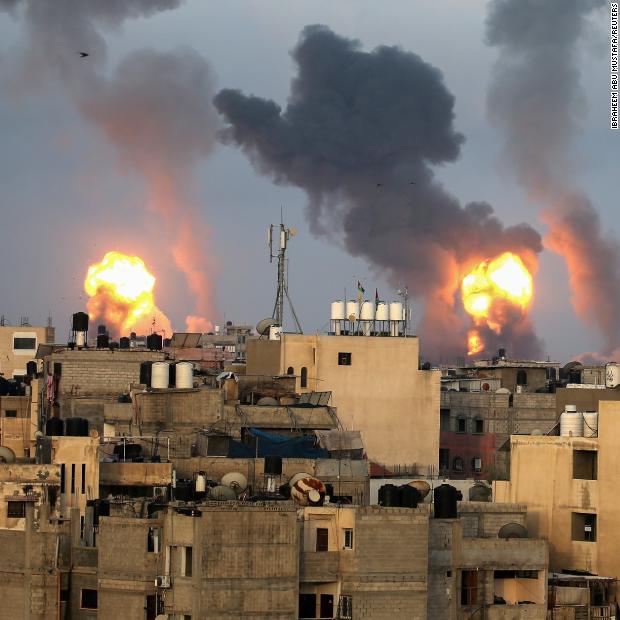
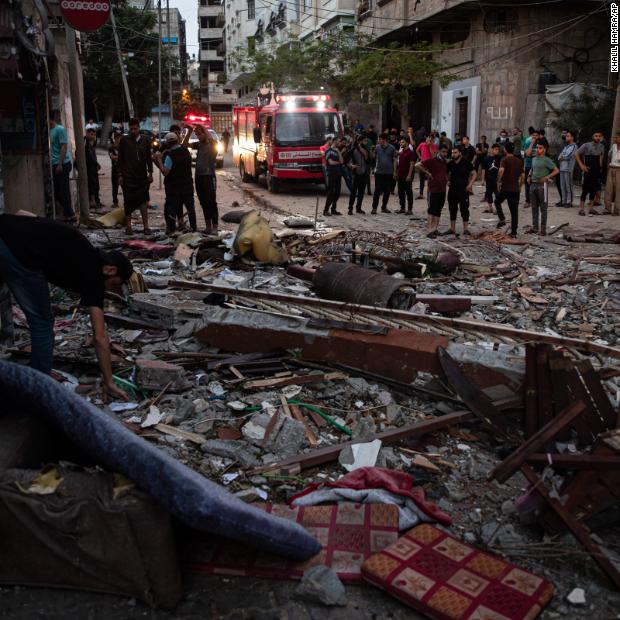
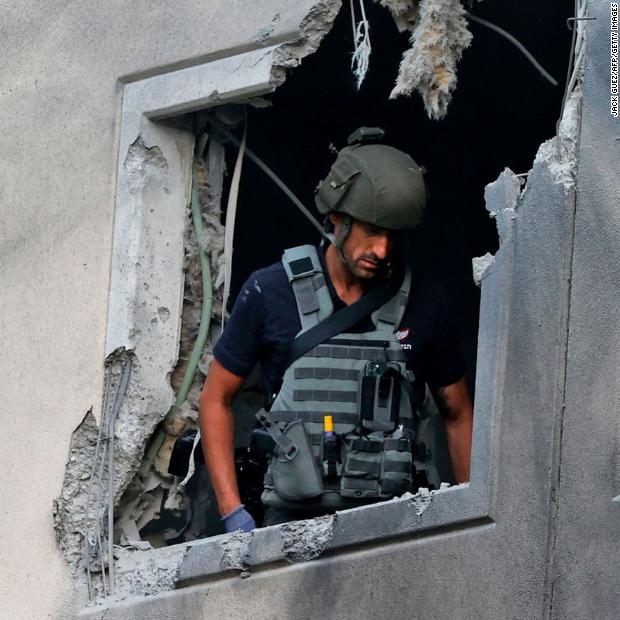
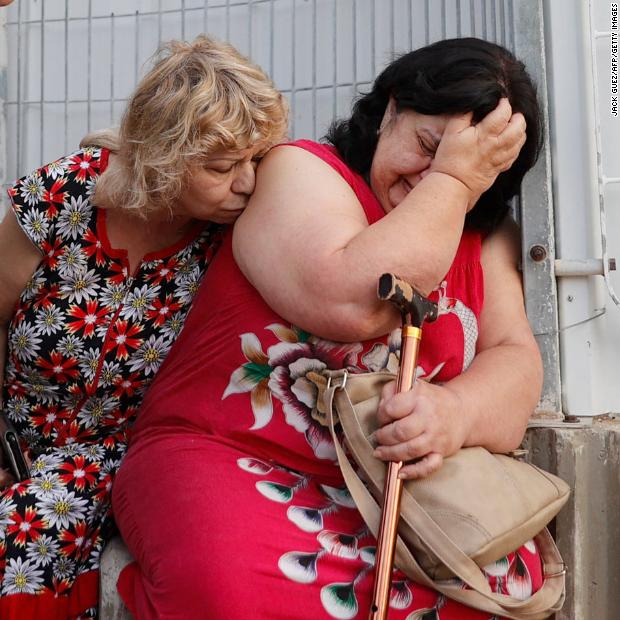
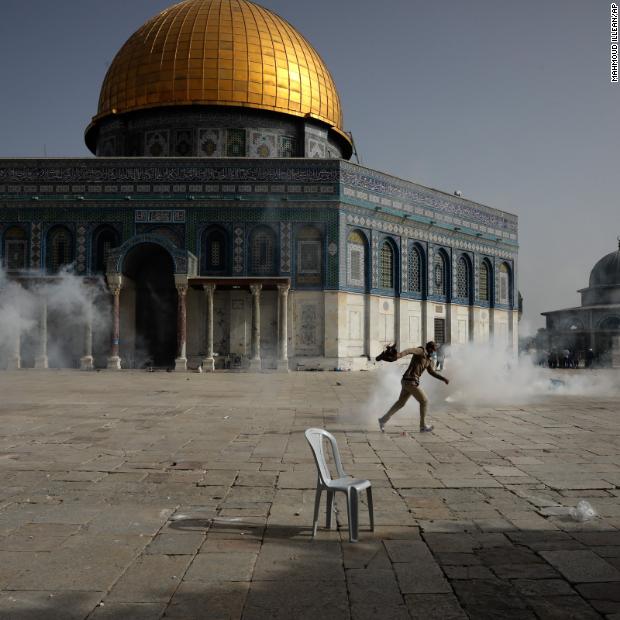
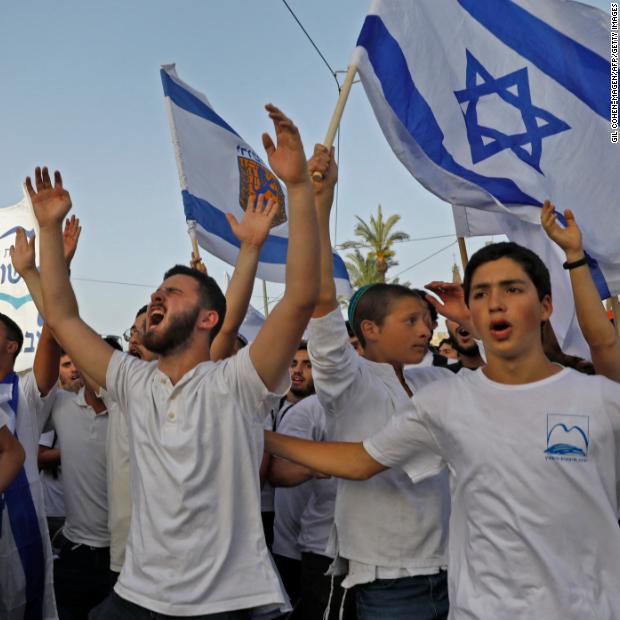
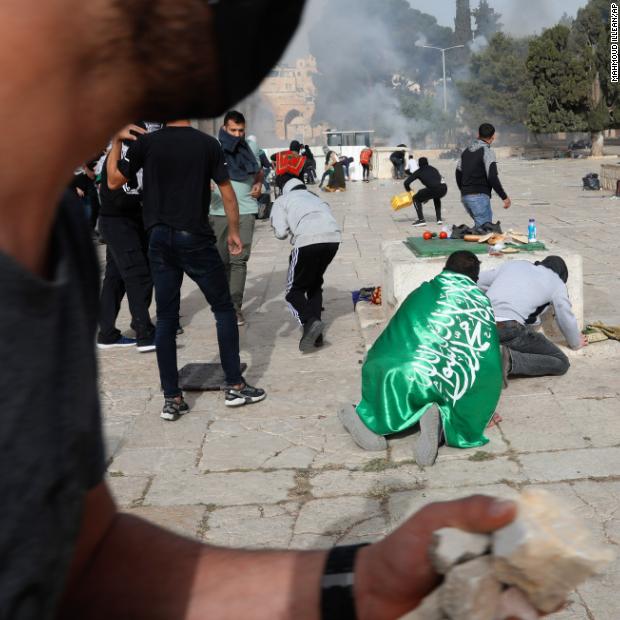
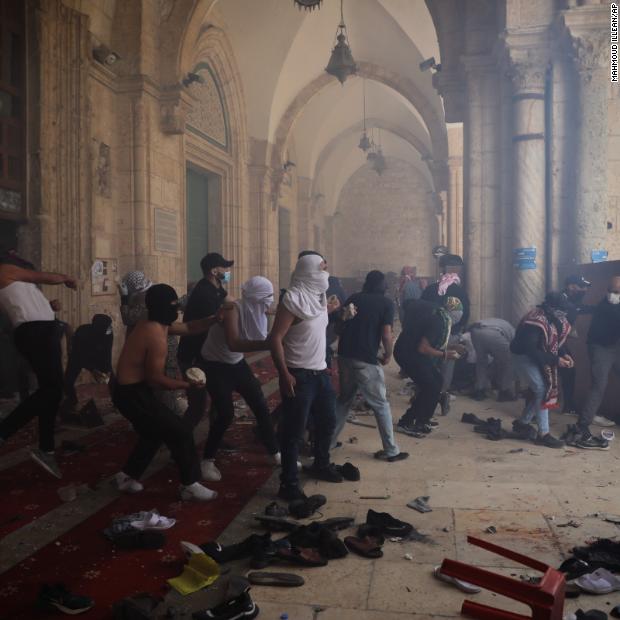
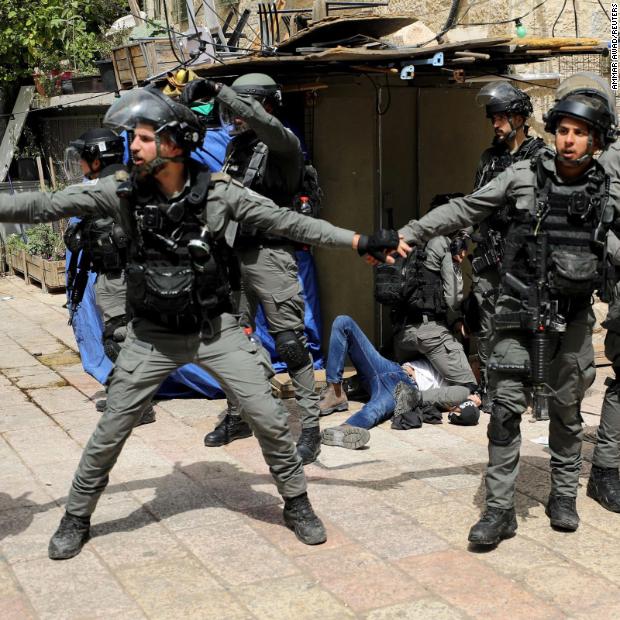
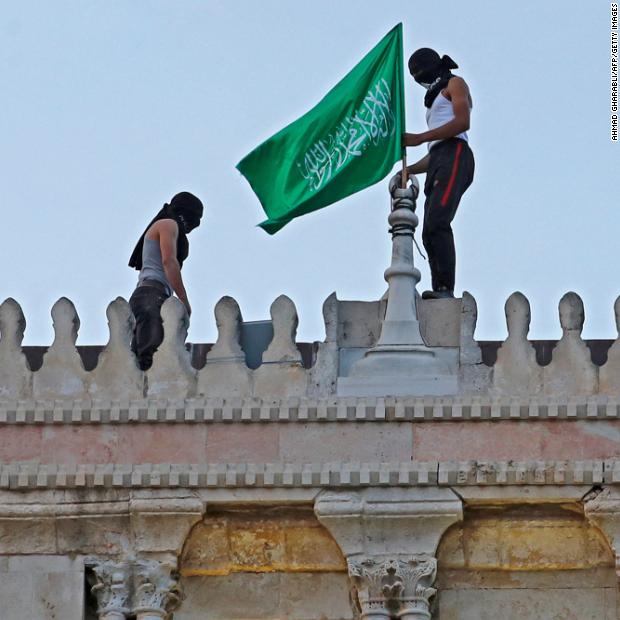
What is East Jerusalem and why is it so sensitive?
For nearly two decades after the founding of the State of Israel in 1948, the city of Jerusalem was divided. East Jerusalem was controlled by the Jordanians, while West Jerusalem was controlled by the Israelis, who made it their capital. Crucially, the Old City of Jerusalem and its holy sites were in East Jerusalem. The Old City is home to the Church of the Holy Sepulchre where Christians believe Jesus Christ was buried. It is home to the Al Aqsa Mosque where Muslims believe the Prophet Mohammed journeyed on his Night Voyage, as well as the site where they believe he ascended to heaven. And it is home to the holiest site in the world for Jews, the stone where they believe Abraham came to sacrifice his son, Isaac, and where the First and Second Temples stood in ancient times.During the Six-Day War in 1967, Israel captured East Jerusalem, placing the entire city under Israeli control. Israel also captured the West Bank, the Golan Heights, and the Sinai Peninsula. The latter was returned to Egypt under the 1979 peace agreement, but East Jerusalem and the Golan Heights have remained under full Israeli control. The Palestinians enjoy limited autonomy in Gaza and parts of the West Bank, but Israel maintains control of all borders and security.
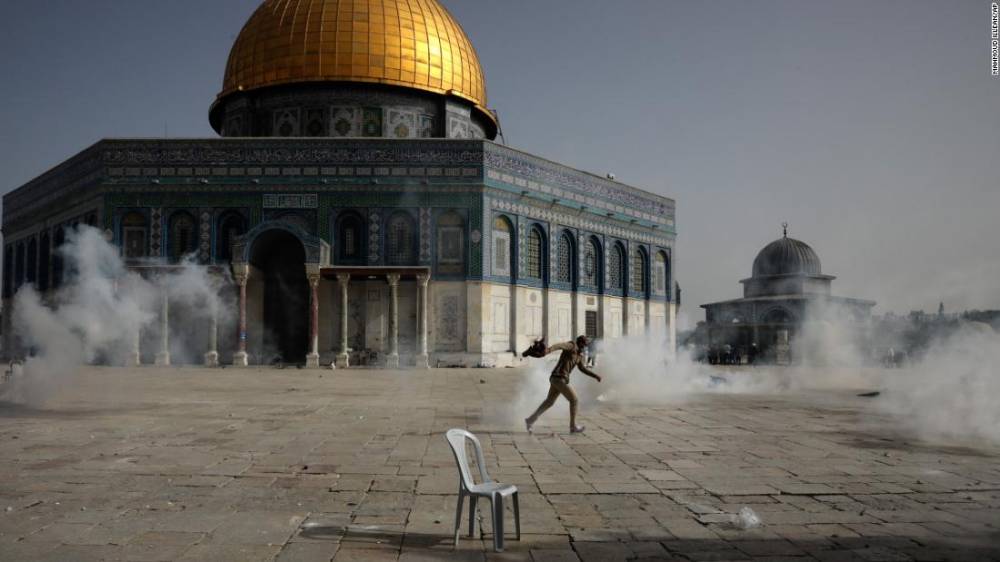
A Palestinian man runs from tear gas during clashes with Israeli security forces at the Al Aqsa Mosque.
What is the reality in Jerusalem today?
The entire city of Jerusalem is under Israeli control. Israel says there is no difference between the city’s east and west, instead describing the city as its united capital. (Even so, the city is largely self-segregated. East Jerusalem is largely Palestinian, while West Jerusalem is largely Israeli. Israeli cab drivers often refuse to drive to locations in East Jerusalem.) But international law considers East Jerusalem, the West Bank, the Golan Heights, and Gaza as occupied territory under United Nations Security Council Resolutions, though that characterization is disputed by Israel. United Nations Security Council Resolution 2334, passed in 2016, said that Israeli settlements in occupied Palestinian territory have “no legal validity” and constitute a flagrant violation of international law.International law does not distinguish between settlements in the West Bank or settlements in East Jerusalem, considering them both occupied territory. The Old City, and more specifically the Al Aqsa compound, is governed by its own agreement known as the Status Quo. Israel is in charge of security on the site, and Jordan, through an Islamic organization called the Waqf, administers the religious sites.In normal times, visitors of all faiths are allowed to visit the complex, but only Muslims are allowed to pray there.Palestinians view East Jerusalem as the capital of a future Palestinian state.
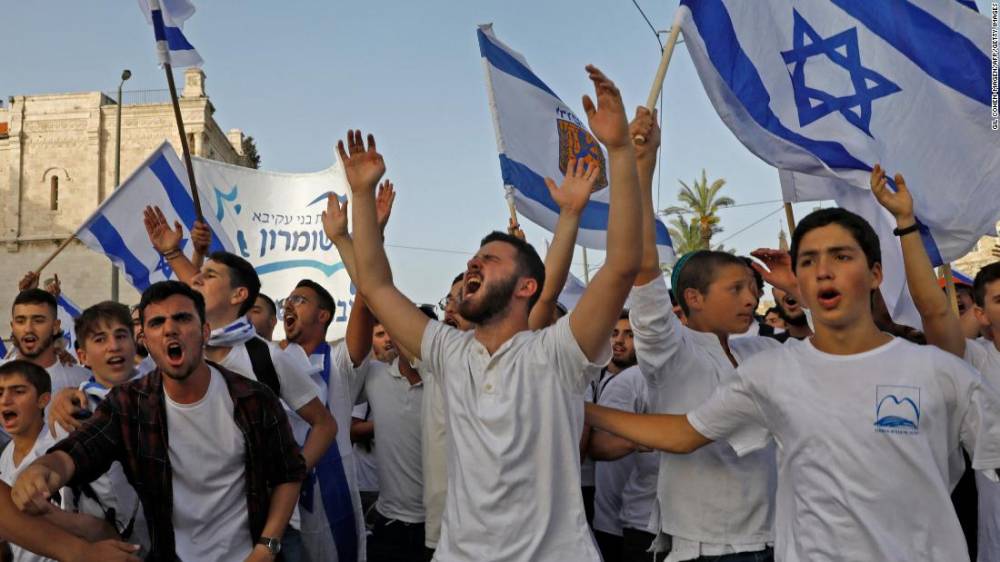
Israelis take part in the annual Jewish nationalist “Jerusalem Day” march on Monday.
What do Israel and Palestinian officials say about the Sheikh Jarrah case?
Palestinian leaders say the effort to evict families from their homes is nothing less than “ethnic cleansing” aimed at “Judaizing the holy city,” the official Palestinian news agency Wafa reported.Israel says the conflict is simply a “real-estate dispute.” The Foreign Ministry accused the Palestinian Authority and militant groups of “presenting a real-estate dispute between private parties, as a nationalistic cause, in order to incite violence in Jerusalem.”More than 700,000 Palestinians were displaced during the creation of the state of Israel, according to the United Nations agency supporting Palestinian refugees.
What is the international community’s position?
The effort to evict Palestinian families from the Sheik Jarrah neighborhood has been widely criticized. State Department spokesman Ned Price said in early May that the United States is “deeply concerned about the potential eviction of Palestinian families in Sheikh Jarrah and Silwan neighborhoods of Jerusalem, many of whom have lived in their homes for generations. As we have consistently said, it is critical to avoid steps that exacerbate tensions or take us farther away from peace. This includes evictions in East Jerusalem, settlement activity, home demolitions, and acts of terrorism.”
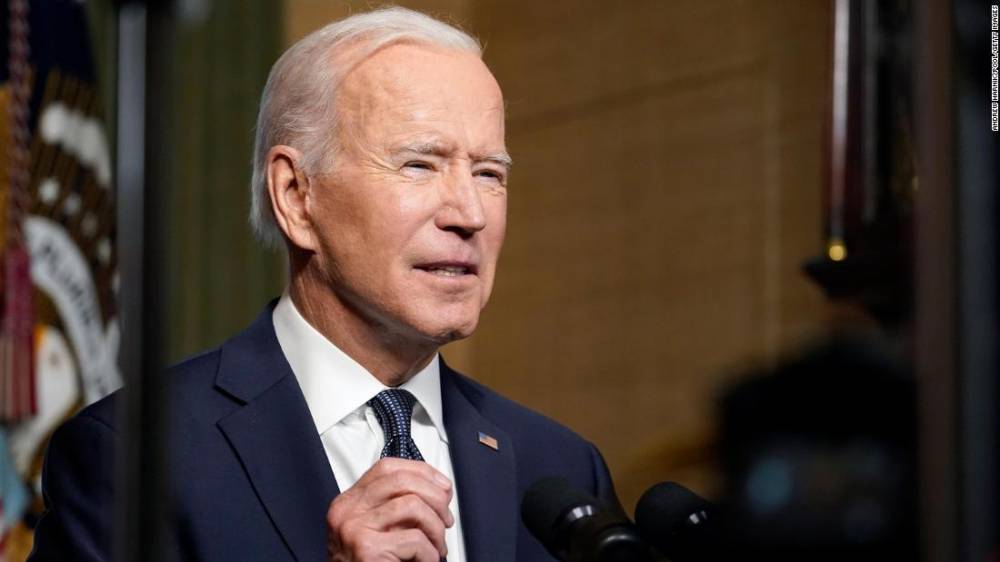
Israeli and Palestinian violence pulls US focus back to Middle East, despite Biden's plans The European Commission also condemned the violence and expressed concern about the possible evictions. “Such actions are illegal under international humanitarian law and only serve to fuel tensions on the ground,” said Peter Stano, EU Commission lead spokesperson for Foreign Affairs and Security Policy, in a statement. The United Nations Office of the High Commissioner for Human Rights said on May 7 that the law is “applied in an inherently discriminatory manner,” adding that the transfer of Israeli civilians onto occupied land could be “prohibited under international humanitarian law and may amount to a war crime.”
Why else have tensions escalated recently?
The Sheikh Jarrah case is the flashpoint for tensions, but they quickly spread throughout the city and far beyond the confines of Jerusalem.The situation in Jerusalem can escalate in a hurry on its own, but the sensitivities in the city have been compounded by a combination of religious and nationalist factors.Two holidays fell on the same weekend this year: the Muslim Night of Power (Leylet el-Qadr) on the night of May 8, considered the holiest night of the year; and the Israeli holiday of Jerusalem Day (Yom Yerushalayim) on May 9-10, celebrating the day the Israeli military took control of the Old City in 1967. Each holiday on its own can inspire religious and nationalist fervor, and together they are even more liable to ignite an already tense situation.
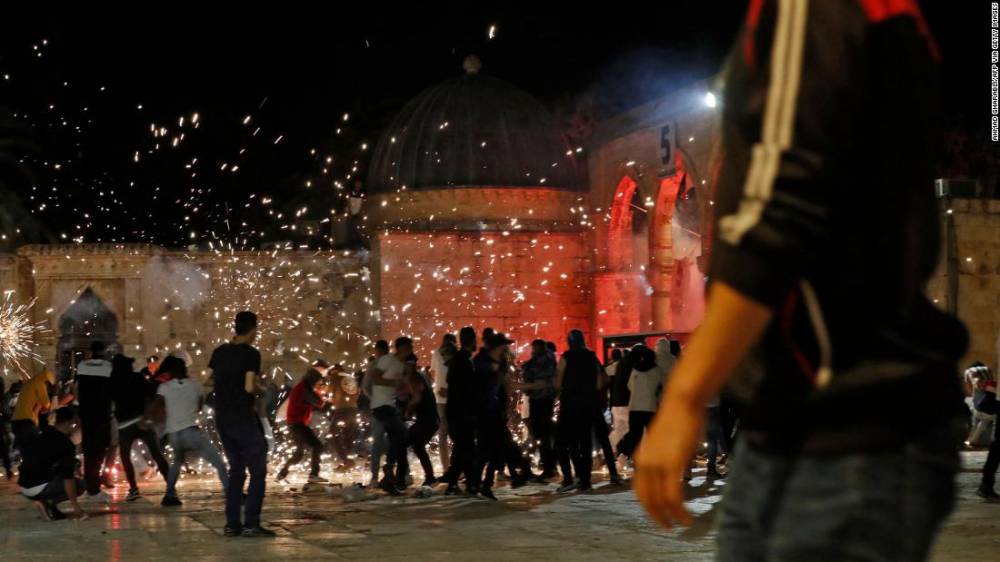
Israel holds all the cards in Jerusalem, yet the city has never been more dividedThe political situation has not helped. Israel has had four inconclusive elections in a row, and Prime Minister Benjamin Netanyahu has courted some openly extreme racist politicians as he struggles to build a coalition and stay in power. That has emboldened some far-right Jewish groups.Right-wing Israeli politicians Itamar Ben-Gvir and Arieh King came to Sheikh Jarrah to send a message that the entire city belongs to Israel. Their presence fanned the flames.
The Palestinian political situation is hardly clearer than the Israeli one. Palestinian Authority President Mahmoud Abbas in April delayed the first parliamentary elections in 15 years, extending a long-running rivalry where his Fatah movement governs the West Bank, while Gaza is run by the militant Hamas, with Islamic Jihad also active there.Such is the power of Jerusalem. Protests in Jerusalem can ignite protests in Israel and the West Bank, as well as prompt militant groups in Gaza to fire rockets and the Israel Defense Forces to launch airstrikes. A situation that began in one neighborhood in Jerusalem has now spread across the area and brought international attention to Israel and the Palestinian territories once again.
Source: edition.cnn.com

